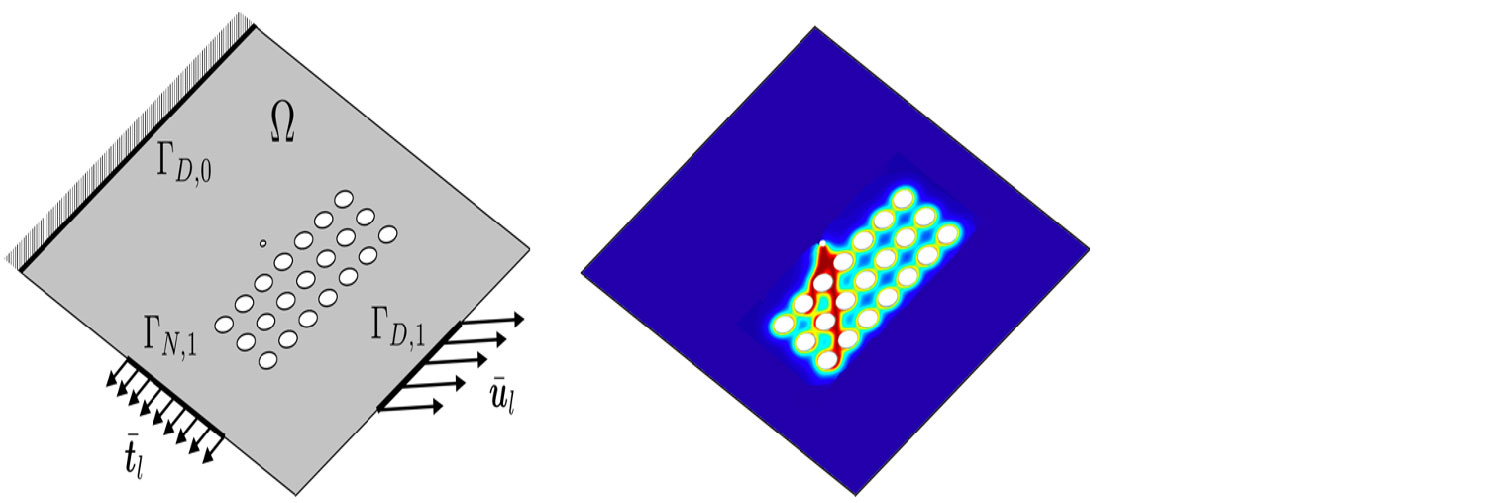Validation and multiscale modeling
We applied the phase-field approach to the quantitative prediction of complex tests conducted on cement mortar specimens by our colleagues at external page LMT Cachan. By feeding the model with independently measured material parameters, we achieved a remarkably good agreement between computational predictions and test results. Also in collaboration with external page LMT Cachan we developed a non-intrusive global-local approach for multiscale fracture computations, which should pave the way for a straightforward adoption of phase-field fracture models within legacy codes in the industrial practice. Within large structures, fracture phenomena most often occur in regions of limited extent only. Moreover, in the case of brittle fracture most of the structure behaves elastically.

These features are particularly appealing for global-local approaches as they make it possible to first compute the global model elastically, and then determine the critical areas to be re-analyzed, while storing the factorization of the decomposition of the structural stiffness. The local models are then iteratively substituted within the unchanged global one, which avoids the reconstruction of the mesh of the whole structure. In fact, this is the main motivation of non-intrusive global-local approaches: to avoid the modification of the finite element model used by engineers, the creation of a complex global model being by far the most time-consuming task, and a task which is more and more externalized.
Funding:
external page DFG external page International Research Training Group 1627, “Virtual materials and their validation: German-French school of computational engineering” (2015-2019).